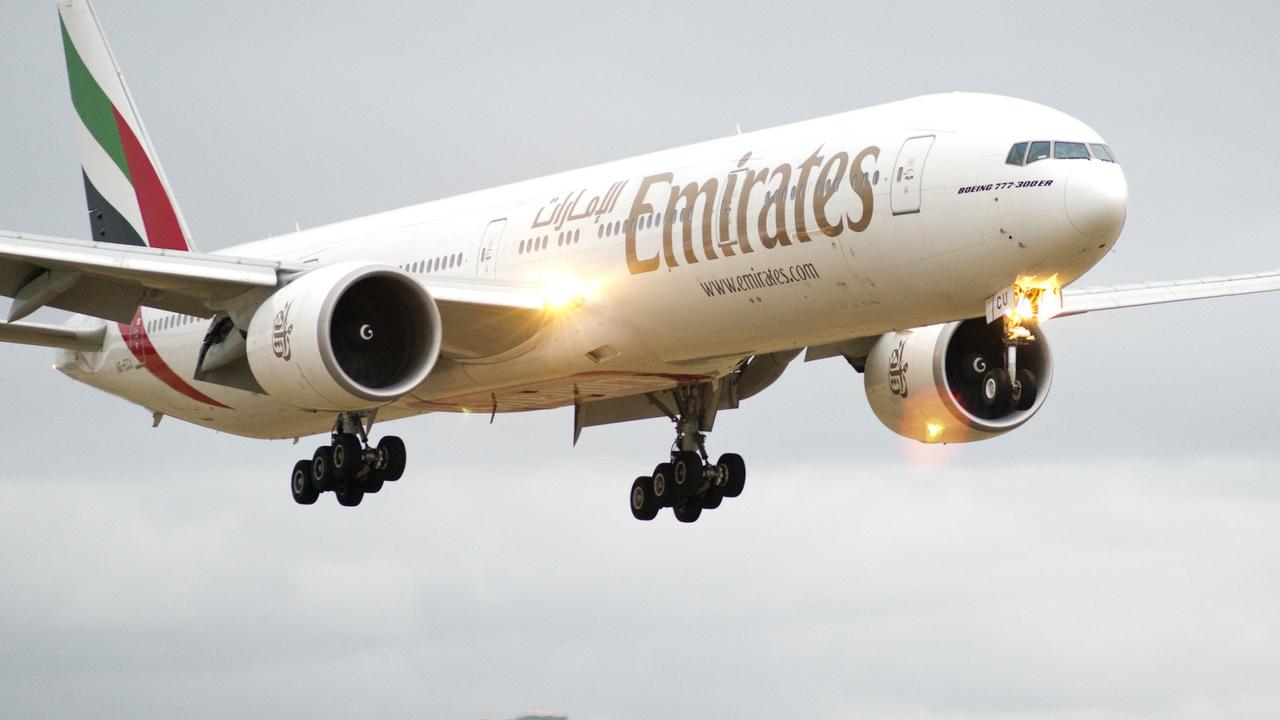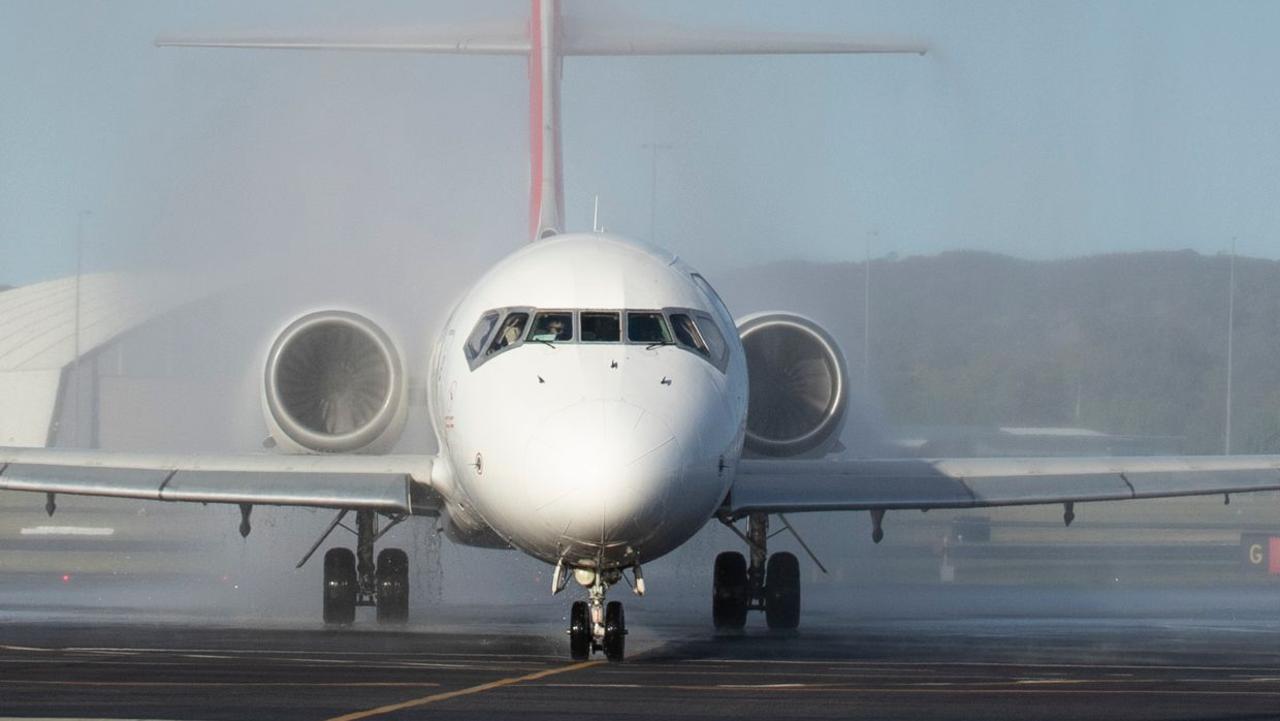Federal budget 2021: Australians react to prediction that border will stay shut until mid-2022
Australians won’t be travelling overseas any time soon, with Treasurer Josh Frydenberg admitting he has no idea when borders will open.
Australians stranded apart from their loved ones have reacted with despair to the news, contained in the federal budget papers, that our international border is likely to remain shut until mid-2022.
And the hard-hit tourism and higher education sectors have warned they will struggle to survive for another year without travel resuming.
The budget’s economic forecasts rely on an optimistic assumption that the whole Australian population will be vaccinated by the end of 2021. Even if that does happen, however, the border is expected to stay closed for another six months.
“Inbound and outbound international travel is expected to remain low through to mid-2022, after which gradual recovery in international tourism is assumed to occur,” the budget documents say.
RELATED: Shock border reveal hidden in the budget
Treasurer Josh Frydenberg was asked about that prediction during his appearance on the ABC’s 7.30 program last night.
“With respect to international borders, it’s quite a conservative, cautious assumption that international borders will gradually reopen from the middle of next year,” he said.
The issue also came up during his brief interview on 3AW radio.
“We’re being pretty cautious and conservative in saying the assumption is that the border will gradually reopen from mid next year,” Mr Frydenberg told host Brooke Corte.
“The confusion around the international border opening or remaining closed, it’s crippling industries like tourism and education. So is the international border going to open by the middle of next year?” she asked, pushing for some certainty.
“Well it’s not a policy decision, it’s an assumption,” said the Treasurer.
“When you’re making budgets, you make assumptions which then feed into the economic forecasts. Our policy decision around the borders will be determined by the medical advice, and you can’t say that this far out from that point in time.
“I don’t think anyone really knows until we get closer to that time.”
The prospect of the international border staying closed for another year is tough for the thousands of Australians stranded overseas, though the budget does include $176 million for repatriation flights and increased consular services.
It’s also hard to swallow for Australians who have been unable to see their loved ones since the pandemic began.
RELATED: The federal budget’s biggest losers revealed
I have to seriously now consider leaving Australia permanently, a decision I’m sure many migrants are now weighing up. It’s the only way I can get out of the country to see my family. My parents are in their late 70s. We don’t have years to wait.
— Jill Stark (@jillastark) May 11, 2021
What constitutes a return to normal is personal.
— Shawn Donnan (@sdonnan) May 11, 2021
For our family it will come when we can go see my mother in Australia or she can come here. Right now Oz gov is signaling it expects to keep border closed - even for vaccinated - into 2022.
We last saw my mother in Sept 2019.
It's INFURIATING. I haven't seen my parents and sister in years. They've missed my child (their only grandson/nephew) growing up. We're vaccinated. They're vaccinated. And yet it's likely to be another YEAR?
— Baz McAlister (@bazmcalister) May 11, 2021
Border closed for 14 months now. People like me who rely on the border to be open for their regular job to function, its been hell. Now @JoshFrydenberg says *another* 14 months more until they open. Every house lost, every broken marriage, every self-harm incident is on his head.
— GroundedGlobetrotter 🇦🇺🇹ðŸ‡ðŸ‡´ðŸ‡²ðŸŒâœˆï¸ (@LachlanB_) May 11, 2021
I'm devestated. I'm heart-broken. It's not just me. It's my colleagues, my friends and the many people I know who have been living with misery and uncertainty with no end in sight. Really don't know what I can do to keep going. It's so hard to keep positive. I think I'm broken.😓
— GroundedGlobetrotter 🇦🇺🇹ðŸ‡ðŸ‡´ðŸ‡²ðŸŒâœˆï¸ (@LachlanB_) May 11, 2021
Australia keeping its borders closed until mid-2022, meaning ticket prices won’t be affordable until 2023, meaning It will be five years between visits to my family, is so monumentally depressing I’m not sure I can do any work today. https://t.co/uoxQ0MycaN
— Lance Richardson (@lancerichardson) May 11, 2021
There are economic consequences as well, particularly for the tourism and education sectors.
Catriona Jackson, chief executive of Universities Australia, said the sector “cannot sustain” its losses with the border remaining shut. Universities have suffered from the lack of international students.
“Governments across all jurisdictions need to come together with universities to develop a robust plan for the safe return of international students. The plan would mean the safe quarantine of students from low-risk countries,” she said.
“The sector took a $1.8 billion revenue hit last year. Universities Australia estimates another $2 billion will be lost this year, against 2019 actual operating revenue.
“With borders shut until mid-2022, the picture for universities will get worse, with significant flow-on effects for the nation’s research capacity and jobs, inside and outside universities.
“Australia’s university sector cannot sustain these losses without serious damage to national productivity and the country’s knowledge base.”
The budget does include plans to allow a small number of international students back into the country with special quarantine arrangements.
It also lays out $1.2 billion to aid the tourism sector by subsidising the cost of domestic airfares and helping airlines to retain flight ready crews and aircraft, among other things.
Industry insiders say that won’t be enough.
And the government is introducing a Global Talent visa and a Temporary Activity visa to allow “highly skilled individuals” to enter the country.
“Australia’s effective management of COVID-19 makes us an even more attractive place for the best and brightest from around the world,” Mr Frydenberg said last night.
“To take advantage of this, we are streamlining visas to target highly skilled individuals when circumstances allow.”
“This is a budget that leaves the tourism industry high and dry with nowhere to go,” said Margy Osmond, chief executive of the Tourism and Transport Forum.
She added that many tourism-based businesses would have “no option but to send up the white flag and surrender”.
Innes Willox, chief executive of the Australian Industry Group, said businesses need the border to be open “sooner rather than later”.
“It’s impacting them in a range of ways. They’re finding it difficult to get staff into the country. They’re having difficulty to get people in to repair and replace equipment. They’re just finding it difficult to move around,” he said.
The Australian Chamber of Commerce said it was “vital” for the government to begin a “staged reopening as soon as possible”.
“Businesses need certainty,” said the chamber’s tourism chair John Hart.
“The sector hinges on a firm commitment to international restart, from generating demand to accessing skills.”
While Mr Hart welcomed several budget measures, including the funding being provided to Tourism Australia, he said the support would “fall short without a plan to open Australia”.
The opposition is blaming the situation on a delayed vaccine rollout and the continued lack of federal quarantine facilities.
“International borders not reopening until mid-2022. Did I miss the part of the budget where the government was going to build quarantine facilities to manage international arrivals, or where they were going to speed up the vaccine delivery?” said Senator Nita Green.
Speaking to Channel 9 last night, Shadow Treasurer Jim Chalmers blamed the Prime Minister for the slow vaccine rollout.
“What about keeping the borders closed until the middle of next year? That seems extraordinary. Would you do that differently?” asked interviewer Chris Uhlmann.
“Well it all comes back to the vaccinations and to quarantine, the things that Scott Morrison refuses to take responsibility for,” said Mr Chalmers.
“The budget tonight had some weasel words about when that might be possible, to reopen. But it all comes back to the vaccinations.
“You can’t have a first-rate economic recovery with a third-rate vaccine rollout, but that’s what the Prime Minister has given us.”




